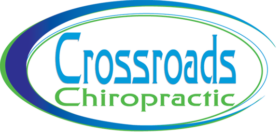 In this weeks video health tip, Dr. Matthew Davis, director of Crossroads Chiropractic, shares important information looking at the benefits of adding prebiotics to your diet.
In this weeks video health tip, Dr. Matthew Davis, director of Crossroads Chiropractic, shares important information looking at the benefits of adding prebiotics to your diet.
Prebiotics are a type of non-digestible fiber compound found in foods like garlic, onions, asparagus, Jerusalem artichokes, jicama, dandelion greens and leeks, pass through the upper part of the gastrointestinal tract and remain undigested, since the human body can’t fully break them down. Once they pass through the small intestine, they reach the colon, where they’re fermented by the gut microflora.
They help with digestion, lowering inflammation, increasing immunity, weight control and lowering risk of chronic diseases. People do not consume enough prebiotics.
As prebiotics make their way through the stomach without being broken down by either gastric acids or digestive enzymes, they bring about positive changes in the digestive tract and organs. Essentially, prebiotic compounds become nutrient sources, or “fuel,” for the beneficial bacteria that live within your gut. While probiotic foods are essential for gut health and overall well-being, prebiotics help “feed” probiotics. By pairing them together, you can achieve a much better result. They play a fundamental role in preserving health by maintaining balance and diversity of intestinal bacteria, especially increasing the presence of “good bacteria” called lactobacilli and bifidobacteria.
Because the health of our gut is closely tied to many other bodily functions, prebiotics and probiotics together are important for battling inflammation and lowering overall disease risk.
Higher intakes of prebiotics are linked to benefits, including:
• lower risk for cardiovascular disease
• protection of bone health
• better gut health
• improved digestion
• better hormonal balance and improved moods
• higher immune function and cancer protection
• lower risk for obesity and weight gain
• lower inflammation and autoimmune reactions
Prebiotics are primarily found in certain vegetables, some whole grains, sources of resistant starch (like under-ripe bananas) and even in honey.
Getting fiber and prebiotics from whole, real foods is always going to be your best option. Supplementing with a quality probiotic supplement that also includes prebiotics can be beneficial too, but this shouldn’t take priority over eating a balanced, healthy diet.
Your best source for health information is your Sharpsburg Chiropractor, Crossroads Chiropractic. Visit Crossroads Chiropractic regularly and make sure your nervous system is functioning 100%.
If you are watching this video on Facebook, please Love our page, comment and share. If you are watching this video on our YouTube Channel please subscribe, and if you are watching this video on our website and have not already done so, please add your name and email address by clicking here.
[wp_lightbox_fancybox_youtube_video link="https://youtu.be/7b1N3eNV0Hs" title=“Benefits of Prebiotics in Your Diet” source="https://i.ytimg.com/vi/7b1N3eNV0Hs/hqdefault.jpg"]
